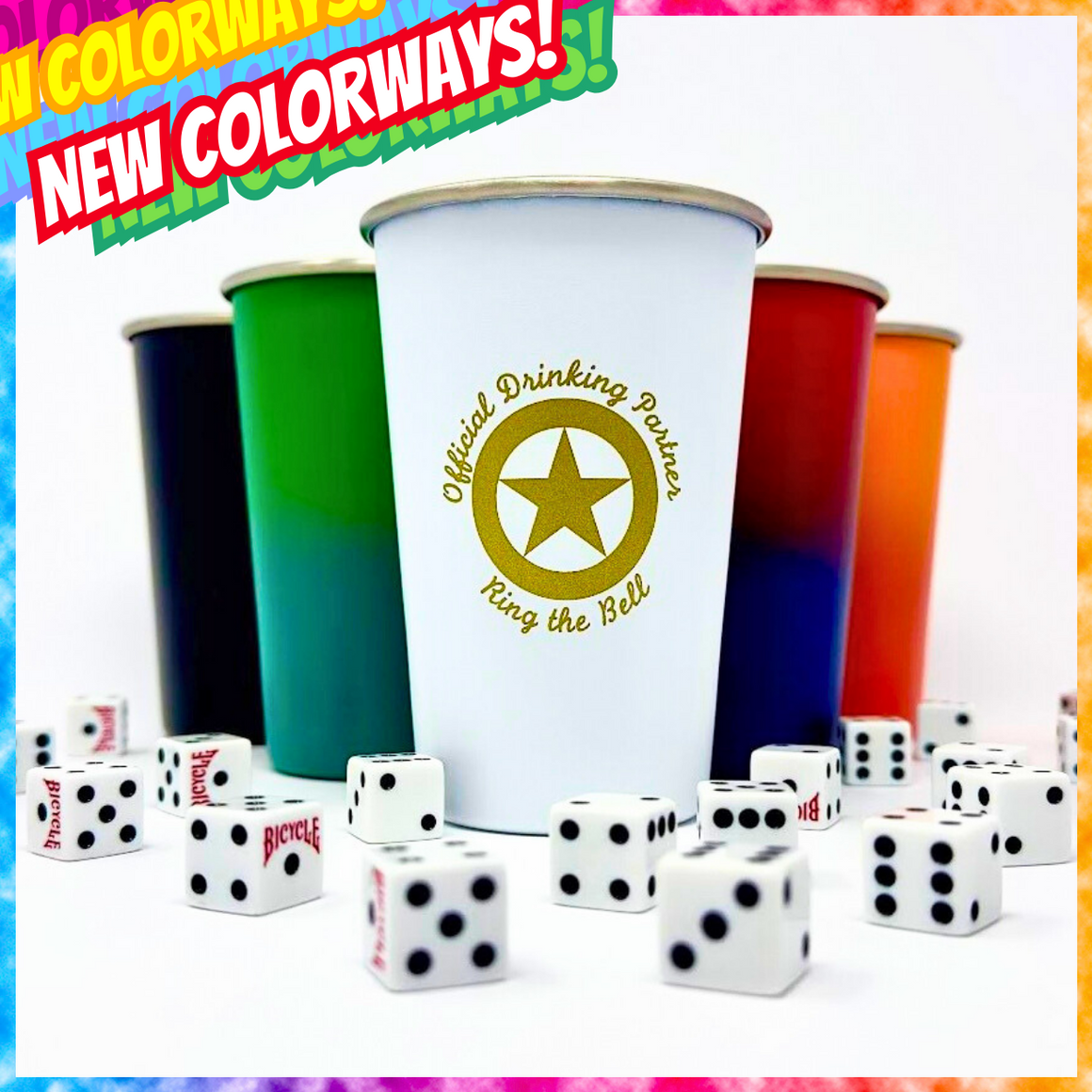The Plastic Problem

While we were attending college we noticed that a lot of drinking games were played with single-use plastic cups. No one wanted to carry around pint glass when they could hold onto a Solo Cup... but looking back were we oblivious to the The Plastic Problem?
Did you know: Polystyrene (PS) cups, aka red party cups, aka Plastic #6, aka Styrofoam, can take half a millennium to disintegrate and it never biodegrades? Additionally, “90.5 percent of plastic waste has never been recycled.”
The Problem: Polystyrene's greatest strength is also its greatest weakness. Polystyrene is roughly 95% air, which makes it a great insulator but highly uneconomical to recycle. Polystyrene beads can expand up to 40-50 times their original volume.
Polystyrene (PS) is not recycled for two primary reasons.
1. It is generally more expensive to recycle PS than it is to manufacture. Polystyrene is a hydrocarbon polymer and therefore it has to be transported to a specialized treatment facility. Expanded Polystyrene (EPS) that has been used for food and beverages creates sanitation problems for recycling facilities. According to a 2004 study done by the California Integrated Waste Management Board, of the 377,580 tons of polystyrene produced in California, only 0.8% is recycled. Of that, only 0.2% (310 tons) of polystyrene food service packaging is recycled.
Recycling is often calculated by weight. Why fill a truck with high volume, low density polystyrene, when you could fill it with polyethylene terephthalate? Polyethylene terephthalate (PET) can be repurposed into water bottles, clothing, sporting goods and food packaging.
2. Polystyrene is difficult to sort and collect. Single-use polystyrene products are often painted, glued, or attached to other plastics. The best way to sort polystyrene from other plastics is by hand, but as you probably know, a bunch of other shit gets mixed in with the recycling. Sorting facility workers are exposed to sharp objects, hazardous waste, airborne contaminants, and rotting organic materials.
Unfortunate Facts (and how it affects our health):
- 340,000,000,000 pounds of plastic are currently floating in our oceans
- Americans throw away an estimated 25,000,000,000 Styrofoam cups every year
- The main precursors to polystyrene are benzene and styrene
- Heat and acidic compounds break down Polystyrene
- Polystyrene leaches a neurotoxin called styrene
- Styrene accumulates in our body's fatty tissue and has been linked to cancers, birth defects, and neurological disorders
- Exposure to benzene causes neurological symptoms and affects our bone marrow causing aplastic anemia, excessive bleeding and damage to our immune system.
The manufacturing process for polystyrene foam releases harmful hydrocarbons. These hydrocarbons combine with nitrogen oxides when exposed to sunlight and form a dangerous ground level air pollutant called tropospheric ozone. Aside from the manufacturing process, single-use plastics are contributing to climate change in three major ways.
Fossil fuels are required to produce plastic and the process continues well past its useful life. The pollutants emitted by vehicles transporting single-use plastics is significantly higher than that of other goods because of its shelf life. So the next time you're browsing your local convenient store, looking for plastic cups, ask yourself, "how far did those items travel, only to be immediately restocked?
Unmanaged plastics also end up in the environment. Microscopic plants (phytoplankton) and animals (zooplankton) play a critical role in the biological carbon pump that captures carbon at the ocean’s surface and transports it into the deep oceans, preventing it from reentering the atmosphere. These plankton are being contaminated by micro pollutants.
Lastly, the incineration process accounts for the most CO2 emissions among plastic waste management methods. “Annual CO2 emissions from plastic could grow to more than 2.75 billion tons by 2050.” Nearly 30 years ago, the Environmental Protection Agency (EPA) named the polystyrene manufacturing process the 5th largest creator of hazardous waste.
The Solution: The only practical solution is to replace single-use cups with reusable steel cups. Stainless-steel is 100% recyclable, more durable, more economical, and provides better sustainability for our environment. If you want to make a positive impact on the environment, minimize the amount of waste you create.
If you would like to read about the “Real Cost of Styrofoam” click (HERE)
Glass versus Stainless-Steel Debate:
Imagine a world where the rim of a glass didn't shatter after being dinked by an ultra-perfect toss, or break after being knocked off the table by some dude that likes Four Loko's. Yeah, that world sounds pretty f*ckin' awesome. For starters, a traditional pint glass weighs nearly 16 ounces, while ours weigh 4 ounces. That means four Official Drinking Partner beer die cups weigh less than one traditional pint glass. Our products last decades, they're sustainable, and you'll never have to worry about replacing another gpint lass. #PassOnGlass #PhuckPlastic #GetBuzzedStayBizzy
